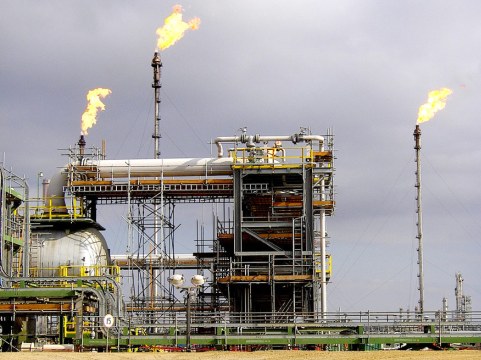The first phase of the Trans Adriatic Pipeline’s 10 billion-cubic-metre capacity is booked, a TAP official has told New Europe.
 TAP’s initial capacity will be ten billion cubic metres per year with the option to expand the capacity up to 20 billion cubic metres per year. TAP will transport gas from the second stage of development of Azerbaijan’s Shah Deniz gas and condensate field to Europe. The 878 kilometre-long pipeline will connect with the Trans Anatolian Pipeline (TANAP) at the Turkish-Greek border at Kipoi, cross Greece and Albania and the Adriatic Sea, before coming ashore in Southern Italy.
TAP’s initial capacity will be ten billion cubic metres per year with the option to expand the capacity up to 20 billion cubic metres per year. TAP will transport gas from the second stage of development of Azerbaijan’s Shah Deniz gas and condensate field to Europe. The 878 kilometre-long pipeline will connect with the Trans Anatolian Pipeline (TANAP) at the Turkish-Greek border at Kipoi, cross Greece and Albania and the Adriatic Sea, before coming ashore in Southern Italy.
“For the first phase of TAP’s capacity all of the Initial Capacity (10 bcm per year) is booked on ship or pay, long term contracts – 25 years as of start of operation,” Ulrike Andres, Commercial & External Affairs Director of the Trans Adriatic Pipeline AG told New Europe, following a presentation of the project before the start of the Athens Energy forum 2017.
“However, there is a minor amount of capacity available for short term (annually and less than one year in duration) transportation and capacity might be made available on the secondary market, should there be demand from shippers,” Andres said.
Asked if the second phase would transport gas from Azerbaijan, she said, “Azerbaijan is the most likely source of second phase gas, However, in line with EU regulation (TAP is an ITO and complies with the Third Directive), any shipper who wishes to take part in TAP’s open seasons may do so as long as they comply with the requirements for participation”.
TAP’s shareholding is comprised of BP (20%), Azerbaijan’s state oil company SOCAR (20%), Italy’s Snam SpA (20%), Belgium’s Fluxys (19%), Spain’s Enagás (16%) and Switzerland’s Axpo (5%).
On January 24, Gazprom deputy CEO Alexander Medvedev reportedly said in Vienna the Russian gas monopoly could look to link its own Turkish Stream pipeline into TAP.
The European Commission and its Vice President for Energy Union, Maroš Šefčovič, have been pushing for the diversification of gas supplies, lessening the bloc’s reliance on Russia. US Ambassador to Greece Geoffrey Pyatt has also reiterated Washington’s goal “to encourage a robust and resilient energy network across Europe”.
TAP’s can facilitate gas supply to several South Eastern European countries, including Bulgaria, Albania, Bosnia and Herzegovina, Montenegro, Croatia and others. From Italy, Caspian gas could reach European markets such as Germany, France, the UK, Switzerland and Austria.
Andres told New Europe that recent developments in the East Mediterranean concerning the exploration and extraction of hydrocarbons and plans to consider building the EastMed pipeline are “very exciting developments, that are interesting when you look at the future of diversification of different gas resources”.
“TAP transports gas molecules – that’s what it’s built to do. ” Andres said.
By Kostis Geropoulos
Energy & Russian Affairs Editor







